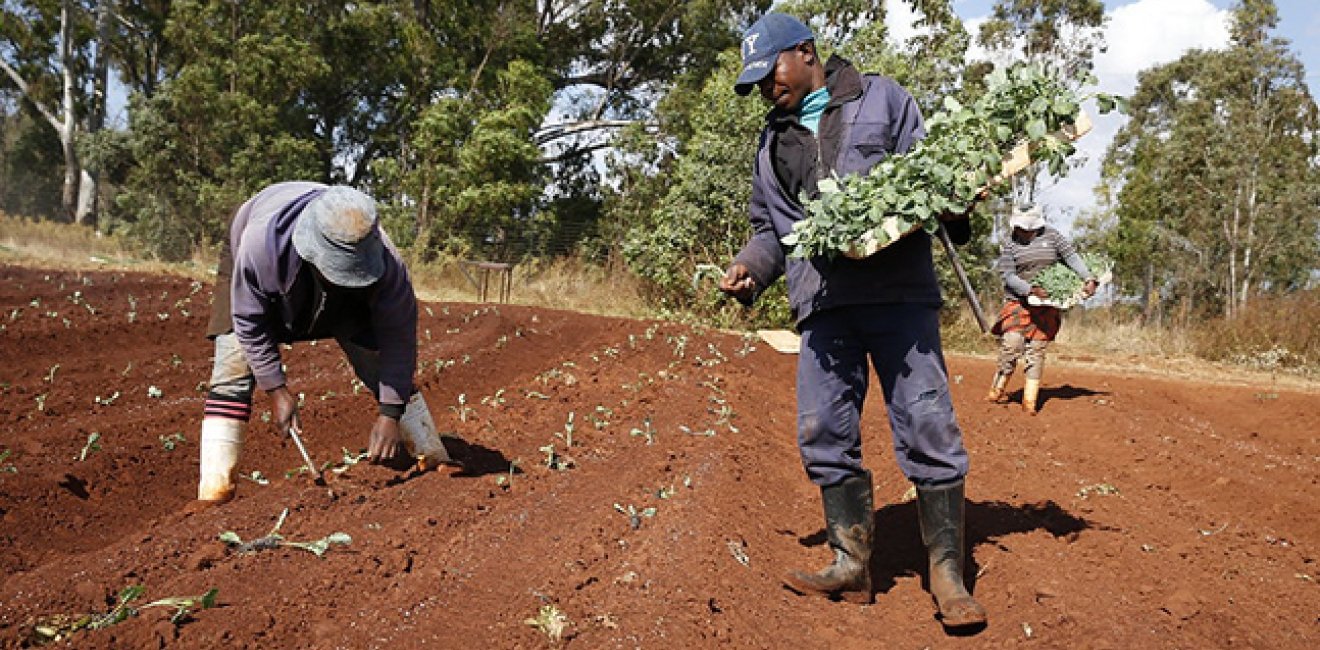
A blog of the Africa Program
South Africa has emerged as the African continent's preeminent economic powerhouse by making laudable strides in addressing the social, political, and economic remnants of apartheid. However, the tacitly polarizing issue of land-ownership has, once again, reopened the nation's old wounds. As outlined in Section 25 of South Africa's constitution, the state maintains constitutional rights to expropriate land "for a public purpose or in the public interest." Recent deliberations on amending Section 25 to allow land confiscation without compensation, however, has garnered diverging reactions from the South African public as well as political parties. Putting aside the social and political implications of such a landmark decision, the economic effects of the policy would lead to an eventual collapse of South African markets and financial systems.
According to a 2017 land audit carried by South Africa's rural development and land reform department, 39 percent of the nation's land is owned by individuals while the remainder is owned by private companies, trusts, and the state. The report also found white South Africans own 72 percent of the nation's individually owned land despite representing less than 10 percent of the total population. Meanwhile, black South Africans own just a mere 15 percent of the land, while the nation's other ethnic groups own the remaining 13 percent.
The International Monetary Fund (IMF) — alongside European heads of state — supports the African National Congress' (ANC) push for land reform since maintaining the status-quo will widen the evident and racially stratified wealth disparity. After a 2018 staff visit, however, the IMF called for structural reforms that improve the welfare of all South Africans, recommending that land reform measures be carried "in a fair, transparent, and market-friendly manner." While consumption is largely dependent on domestic production, the agricultural sector contributed over USD$11.1 billion which is 10 percent of South Africa's total export revenue in 2018. If the South African parliament pursues the current course of land confiscation without compensation, it would not only disrupt one of the nation's most important economic pillars but also risks driving away foreign investors. As of 2018, South Africa is the second-largest recipient of foreign direct investment (FDI) in Africa totaling USD$5.3 billion; with the 2018 FDI numbers being the highest in five years, President Ramaphosa pledges to raise foreign investment USD$100 billion by 2023. Given that the ANC has made land-redistribution a core priority, President Ramaphosa has had to reassure foreign investors that the expropriation process will proceed sensibly and that foreign investors have "nothing to fear." The ANC should endeavor to achieve equity through a balancing act of maintaining, if not maximizing, agricultural productivity, and retain foreign investment while delivering social justice.
The ANC would do well to renounce a Mugabe-style land grab, where land redistribution came to the detriment of the nation's agricultural and economic system. Instead, the governing party can move to regulate land ownership through an annually renewable long-term lease for 99 years. This lease will grant legal ownership of land to the economically disenfranchised black majority and other minority groups while white South African farmers will retain ownership of economic decision-making over the land. Revenue collected from the annual lease-renewal fees can be used to finance communal initiatives for land development and obtaining initial capital. Additionally, landowners may be given an option to choose between a lease renewal fee or substituting it by paying a portion of their revenue instead of paying the lease renewal fee.
To ensure a seamless policy transition, the Portfolio Committee on Rural Development and Land Reform should consider instituting a commission that would study the specific rates of annual lease fees disaggregated by regions as well as the apportionment of land to new owners. Although seemingly ambitious, such a policy will not only ensure the structural soundness and functioning of the South African economy, but it will correct the long-decried wealth disparity using a market-friendly approach.
Ms. Bethlehem Belachew is the External Relations Manager with the Center for Development and Strategy in Washington, D.C.
Author

Africa Program
The Africa Program works to address the most critical issues facing Africa and US-Africa relations, build mutually beneficial US-Africa relations, and enhance knowledge and understanding about Africa in the United States. The Program achieves its mission through in-depth research and analyses, public discussion, working groups, and briefings that bring together policymakers, practitioners, and subject matter experts to analyze and offer practical options for tackling key challenges in Africa and in US-Africa relations. Read more

Explore More in Africa Up Close
Browse Africa Up Close
The Innovative Landscape of African Sovereign Wealth Funds



